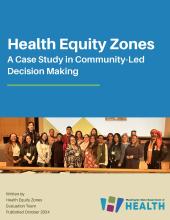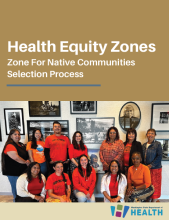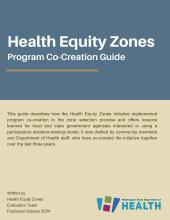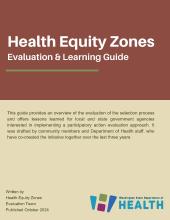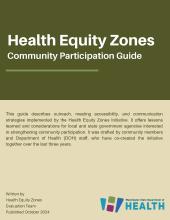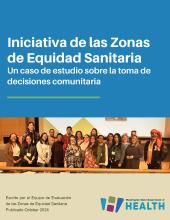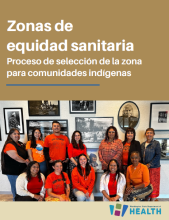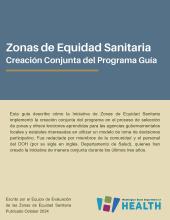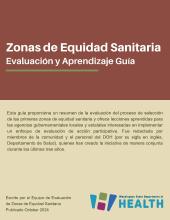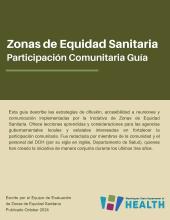- Home
- Health Initiatives
- Evaluation
Evaluation
HEZ Evaluation Materials
About HEZ Evaluation Work
The Health Equity Zones Initiative uses a participatory action approach to evaluation, meaning those involved in the initiative develop the evaluation and use the findings for collective action. Our approach to evaluation centers community knowledge and self-determination, catalyzes action and systemic change, and embeds the practice of reflection, dialogue, and learning into all aspects of the initiative.
The Health Equity Zones Evaluation Team, comprised of zone partners, Community Advisory Council members, and DOH staff, leads the evaluation of the initiative and documents the impact of community-led decision-making for others to learn from.
Evaluation Materials
The Health Equity Zones Initiative published several materials that document the community-led process of selecting the first pilot zones in Washington state. This includes a Community-Led Decision-Making Case Study on the rural and urban zones and a summary of the Zone for Native Communities Selection Process. In addition to, three supplemental guides on Program Co-Creation, Evaluation, and Community Participation.
The materials shed light on the positive impacts of community-led decision-making and offer actionable insights that government agencies can use to strengthen how they partner with communities.
| HEZ Case Study (English/español) |
HEZ Caso de estudio sobre la toma de decisiones comunitaria (español) |
| HEZ Zone for Native Communities Selection Process (English/español) |
HEZ Zone for Native Communities Selection Process (English) HEZ Proceso de selección de la zona para comunidades indígenas (español) |
| HEZ Program Co-Creation Guide (English/español) | |
| HEZ Evaluation & Learning Guide (English/español) | |
| HEZ Community Participation Guide (English/español) |

